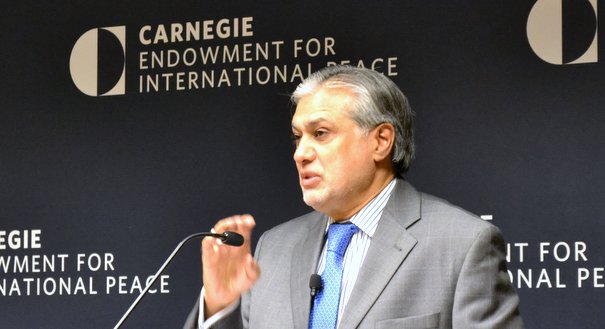Registration
You will receive an email confirming your registration.
While Pakistan’s economy has made strides in recent years, the government continues to deal with very real setbacks, including energy challenges that have hindered fast-paced recovery. If the Pakistan economy is able to continue growing, it could be an ideal time for a number of key reforms in tax structures, as well as the privatization of particularly costly state-owned enterprises. Finance Minister of Pakistan Mohammad Ishaq Dar unveiled his strategy to bring economic growth to par with other emerging economies in the region over the next three years. Carnegie’s Frederic Grare served as a discussant, and Carnegie’s George Perkovich moderated.
Mohammad Ishaq Dar
Mohammad Ishaq Dar is finance minister of Pakistan. A leading financial and economic expert, Dar is a senior leader of the Pakistan Muslim League from Punjab. He has 42 years of professional experience in auditing, financial advising, management consultancy, business, commerce, and industry, in both the private and public sectors.
George Perkovich
George Perkovich is vice president for studies and director of the Nuclear Policy Program at the Carnegie Endowment for International Peace. His research focuses on nuclear strategy and nonproliferation, with a concentration on South Asia, Iran, and the problem of justice in the international political economy.
Frederic Grare
Frederic Grare is senior associate and director of Carnegie’s South Asia Program. He works on India’s Look East policy, on Afghanistan and Pakistan’s regional policies, and on the tension between stability and democratization, including civil-military relations, in Pakistan.
